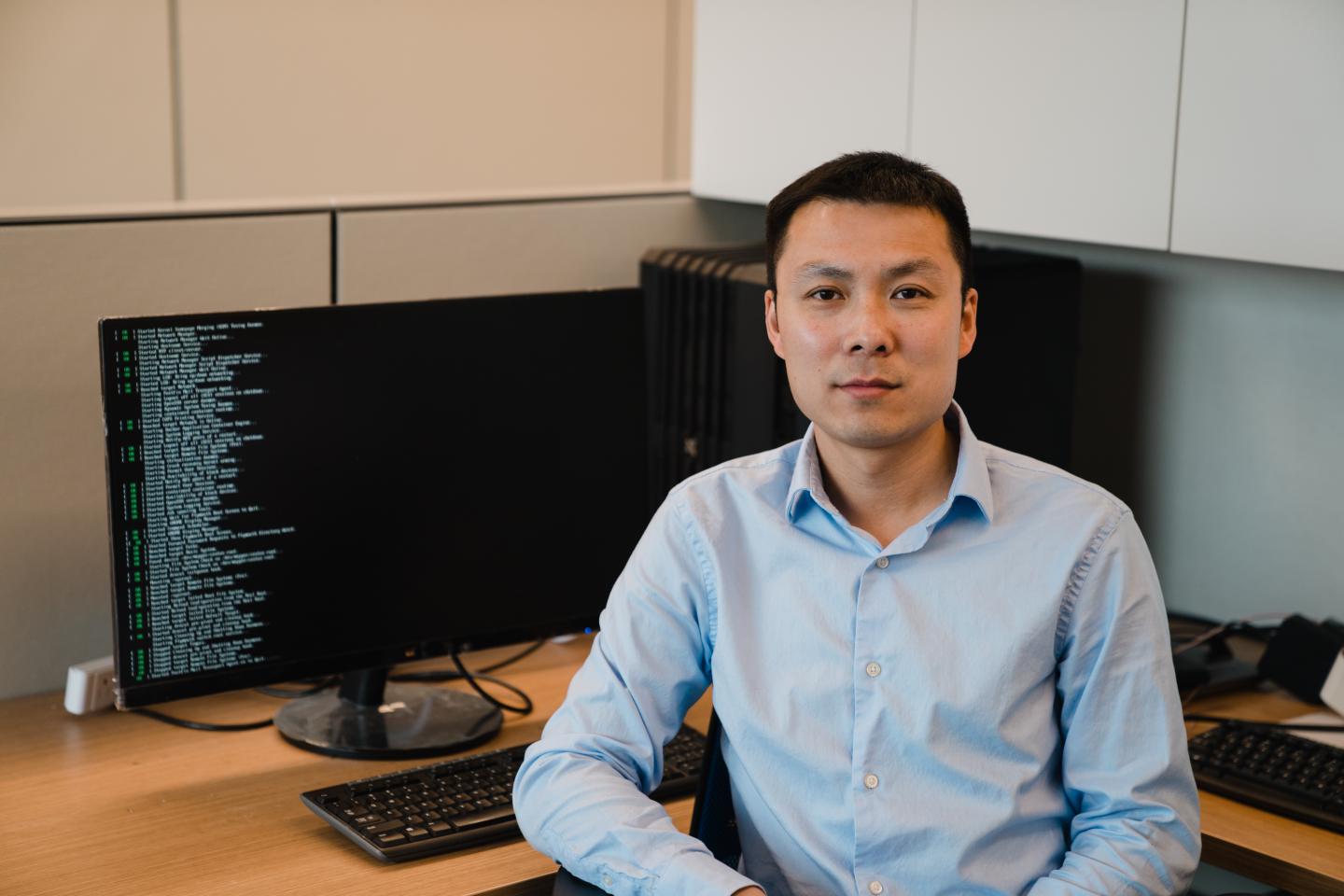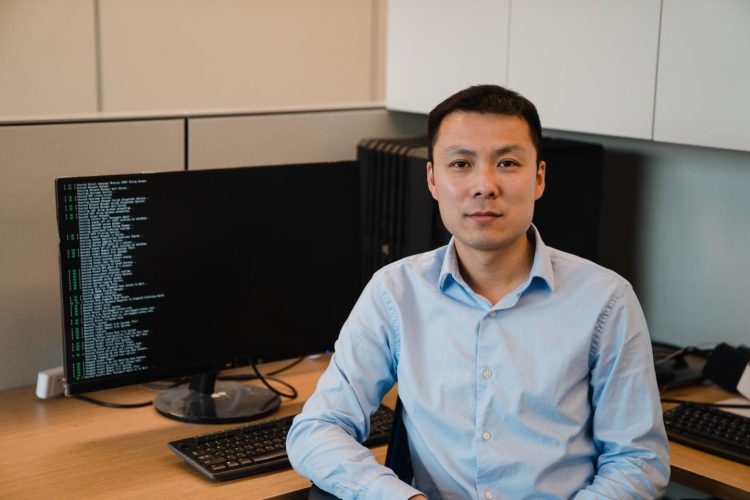Efficient networking technology

Credit: UT Arlington
Advancements in networking technology have provided faster, more flexible solutions for high-speed, high-throughput networks and cloud computing.
But these gains in efficiency are negated by commodity operating systems that can’t handle the increased demand.
Jia Rao, an assistant professor of computer science at The University of Texas at Arlington, recently received a $249,732 grant from the National Science Foundation to develop a method to improve key aspects of network performance within commodity operating systems. Advances would allow users to take advantage of greater efficiency without having to bypass their operating systems.
“Commodity operating systems can deliver only a portion of the peak bandwidth promised and latency is unstable and unpredictable,” Rao said. “This results in users paying substantial overhead on virtualized networks without any hope of capitalizing on the speed of high-speed networks.”
Bottlenecks occur in two areas: high-speed devices and virtualized networks. New devices have much higher throughput and packet rate, or how many units of information can be sent and received per second by a device. Traditional operating systems are not suitable for the demand being placed on them.
Cloud and virtualized networks offer great flexibility, but operating systems cannot efficiently respond to the network speeds required to run the software used to create the networks. Some users write their own code to bypass the operating system and eliminate these issues, but this solution takes a lot of engineering and expertise.
Rao’s work will focus mainly on large data center networks with a high-speed interconnect of 40 and 100 gigabytes. He hopes to develop a stress-testing approach to identify recurring bottlenecks and then design an efficient pipelining process; develop a multi-packet coalescing approach, in which packets are grouped to lower the amount of processing required to send them; and design a holistic scheduling algorithm to optimize virtualized network functions.
“Commodity operating systems have been under development for decades and have a full stack of support for multiple users that takes into account issues of fairness, service differentiation and reliability,” Rao said. “We are taking a forward-looking approach to see what could happen in the future if we can develop a way in which operating systems can handle the demands of high-performance computing.”
Rao’s research is an example of UTA’s work in data-driven discovery, one of four themes of the University’s Strategic Plan 2020.
Rao joined UTA in 2016 and has done extensive research in improving efficiency in computing systems and networks. He received a National Science Foundation Early Career Development, or CAREER, Program grant in February to redesign abstractions in virtualized systems to improve efficiency.
###
Media Contact
Herb Booth
[email protected]
Original Source
https:/





